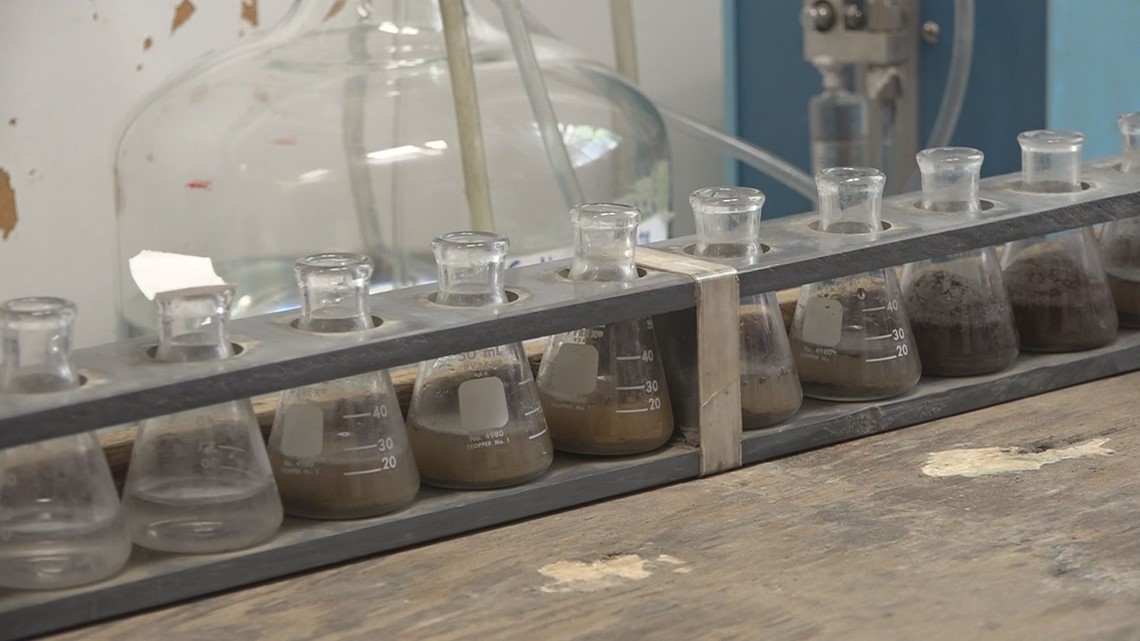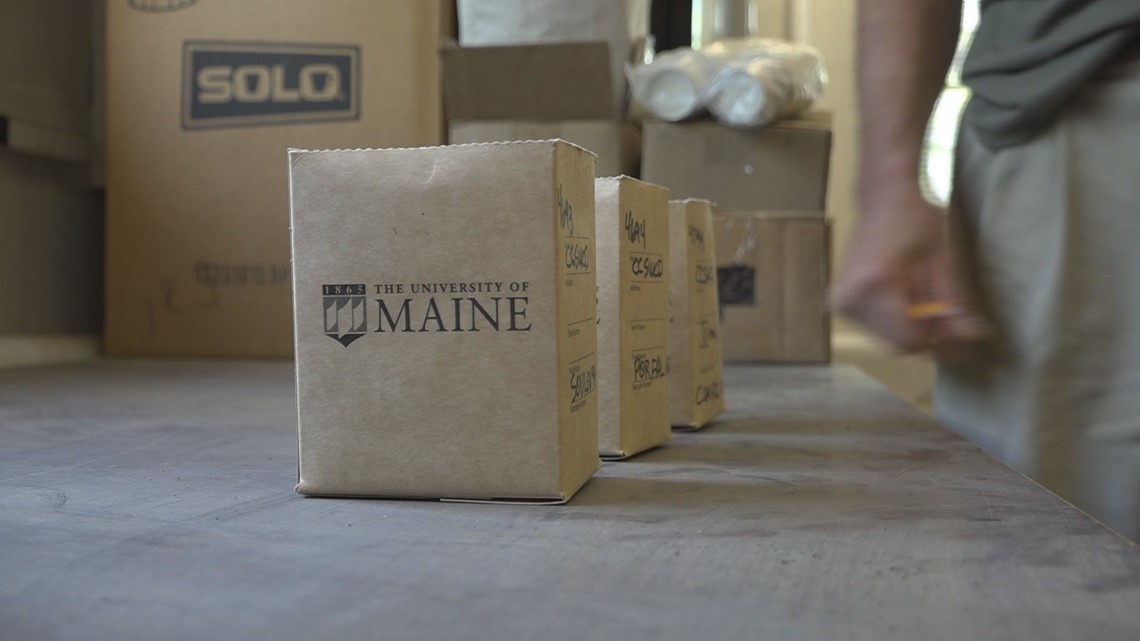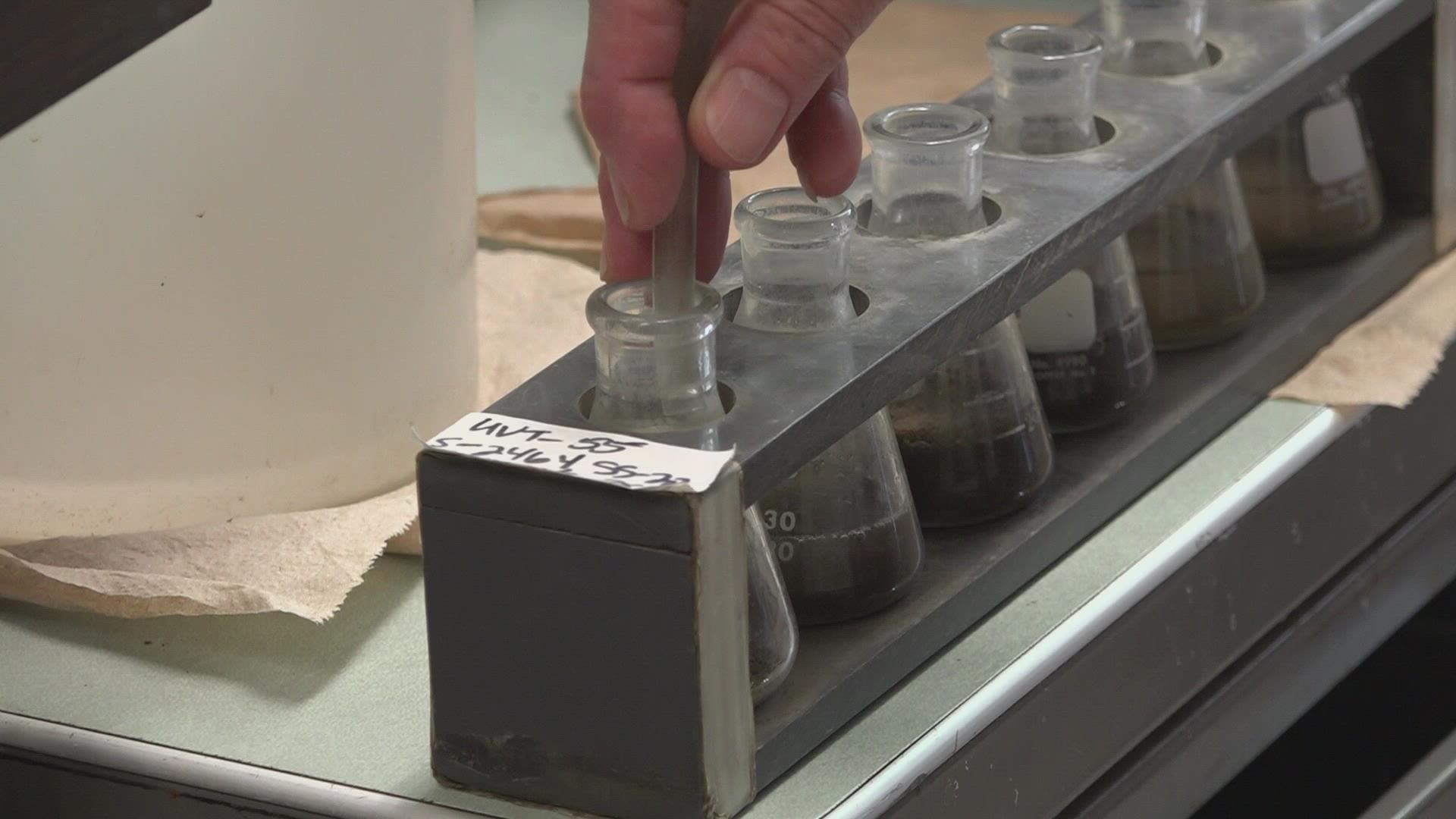MAINE, Maine — Thanks to a grant from the Environmental Protection Agency, free soil lead tests are available to people who live in Cumberland County. The tests are also available to people in other communities for $18.
The Cumberland County Soil and Water Conservation District and the University of Maine have a program where an environmental steward will come and get a soil sample from your garden to see if there is lead contamination. They then send the sample to the UMaine soil lab and, two weeks later, you'll know if your soil is safe for gardening.
Besides soil samples, the conservation district is providing plant and chicken egg tissue samples only in locations where lead contamination has been found. It's a way for people to learn if their eggs are contaminated.
Lead is mostly a concern with children, since they can easily be exposed when they play outside. But it can also be dangerous to anyone eating unwashed produce.
"For fruits and vegetables, you can just wash very throroughly. It's the surface contamination on vegetables that's the issue," Hoskins explained.
Lucas Kirsch is one of the environmental stewards with the Cumberland County Soil and Water Conservation District.
"Unless it's directly seeping into any of the produce that you are actively eating or seeping into your water, it can be avoided and it can be dealt with as well," Kirsch said.
"Leafy greens are the biggest problem because they are difficult to wash, and there is a lot of rain splash of soil up onto the outside, so leafy greens are kind of the most sensitive edible crop," Bruce Hoskins, an assistant scientist at UMaine, said.


Hoskins said if there are high levels of lead in your soil, you can reduce your exposure by using clean soil in raised beds or by putting a grass cover on your yard.
"Raised beds are really nice because you can completely keep them separate from any of the potantial soil in the area, and you can fill them with store-bought compost, which is guaranteed to not have any traces of lead," Kirsch explained.
The goal of the free program is to help minimize Mainers' exposure to lead. Homes with children will be prioritized. Hoskins said many, if not most, of the tests are coming with medium to high lead levels.
"It's a common problem in Maine," Hoskins said.
"A lot of time lead shows up in soil because it will come from paint chips that come across older infrastructure and older houses and sheds," Kirsch explained.


Hoskins said his team tests about 5,000 soil samples a year.
"Lead contamination is an issue either for eating it or breathing the dust; you can absorb it through your skin," the scientist explained. "It is very common in older residential neighborhoods. We are not trying to scare people but just let them know what their level is and what they can do to minimize their intake."
"There have been some properties where we found it around the quadruple digits; 1,600 was the highest one we found," Kirsch added.
Click here if you live in Cumberland County and would like to request a free test.
Click here if you would like to learn more about this program.
Click here if you would like to see the percentages the University of Maine has established for lead contamination percentages (PPM).
Click here if you would like to request a sampling kit to get a lead soil test from UMaine.
There are 2 testing options:
1. A routine fertility test (Standard Soil Test) for $18, that includes a lead screening
2. A lead-only screening test for $12

